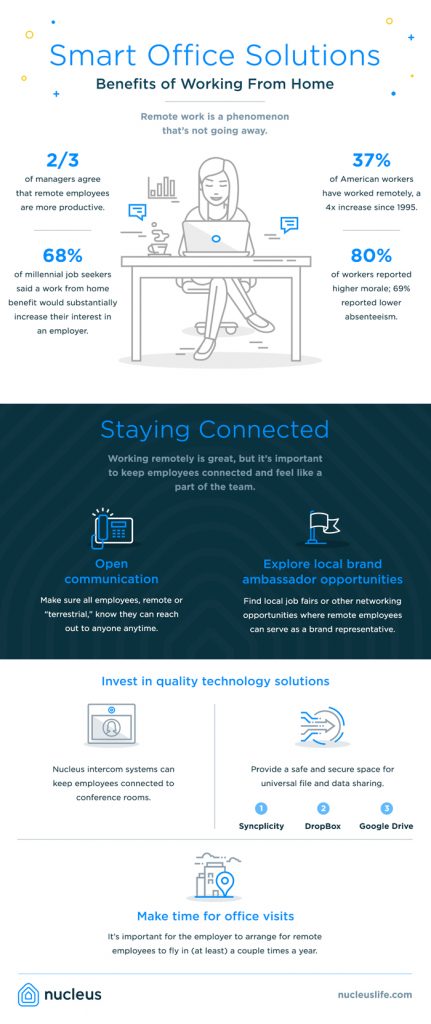Millennials in the Workplace
Posted On April 29, 2017
By Sarah Allen, Community Manager, NucleusLife
By now it’s easy to tell that Millennials have entered today’s workforce with a very different set of values and desires than previous generations. Growing up in a constantly connected world has given them a different perspective on company loyalty, work-life balance, career trajectory, and coworkers. There are an almost overwhelming amount of articles, blog posts, and tweets about how Millennials are the “participation trophy” generation; they’ve been labelled entitled, self-absorbed, and lazy – the list never ends. Instead of rehashing oft-disproved critiques, let’s take a look at how Millennials are thriving (because they are) and changing the future of the workplace at the same time.
Even from the job search stage, Millennials approach work differently. 24% of Millennials reported in a recent LinkedIn survey that they “didn’t know about a company when hearing about a job opportunity.” This cold approach creates a whole new set of challenges for recruiters and companies looking to stand out. The good news is, Millennials are doing their research; they’re more likely to follow companies on social media, and they’re researching opportunities through online job-hunting platforms. Even though the internet has permeated the search process, the top resource for finding jobs is still referrals, so your employees are also empowered to draw in talented job prospects.
While the company loyalty of Millennials can be disputed, the data cannot: a full 30% expect to be working for less than a year at their current company. While this data may encourage some employers not to bother retaining Millennials, others are rising to the challenge. The number one reason Millennials switch jobs is because of compensation & perks; this doesn’t mean every company needs nap pods and sushi chefs, but there are several benefits that Millennials are on the hunt for that are worth considering.
Flexible scheduling is one of the most highly-sought perks in the current job industry. Almost 70% of Millennials reported that a Work From Home (WFH) benefit substantially increases their interest in a potential employer. Moreover, it’s not just Millennials that feel that way: almost exactly the same number of Gen Xers and Baby Boomers want WFH policies, too. It turns out that Millennials aren’t unique in their desire for more workplace flexibility, despite the commonly-held assumption.
Not only is WFH a highly-desirable benefit, it’s an oracle of things to come. Remote workers are here to stay, and that’s not a bad thing. Almost one-third of U.S. employees are now working remotely, with two-thirds using some form of flexible scheduling. Perhaps surprisingly, flexible work options are perceived almost universally as a means to increase productivity. Not to mention WFH policy also lowers stress and raises morale.
Dealing with Millennials in the workplace will inevitably continue to stymie employers, so get ahead of the curve and look at what Millennials are asking for; chances are, these benefits aren’t desired by just Millennials. Whether it’s a flexible scheduling policy or smoothie machines (okay, maybe not smoothie machines!), keeping your employees happy reduces turnover rate, which makes everyone happy at the end of the day. For more stats and tips on WFH & remote work policy, check out the graphic below from smart home intercom system company Nucleus!